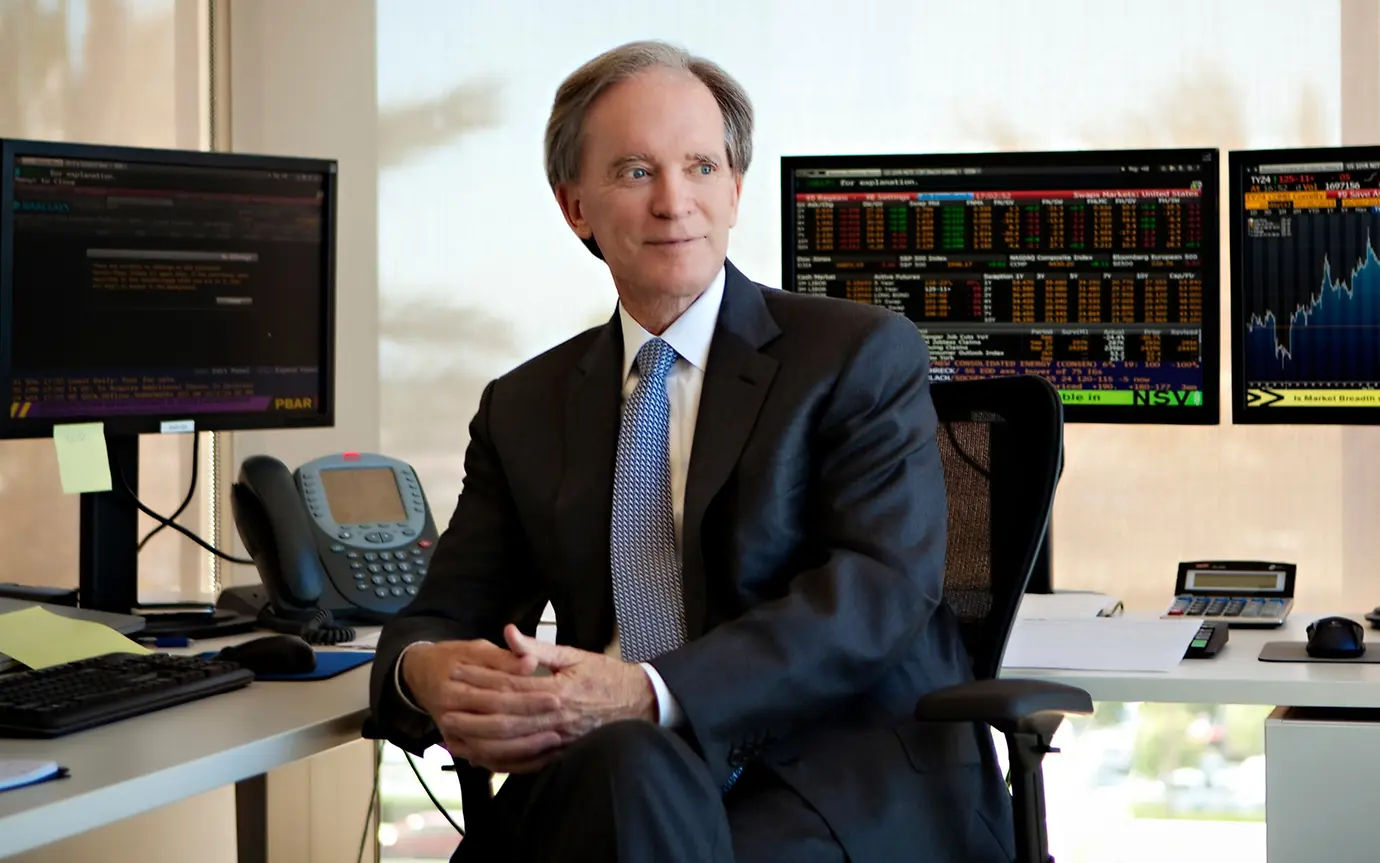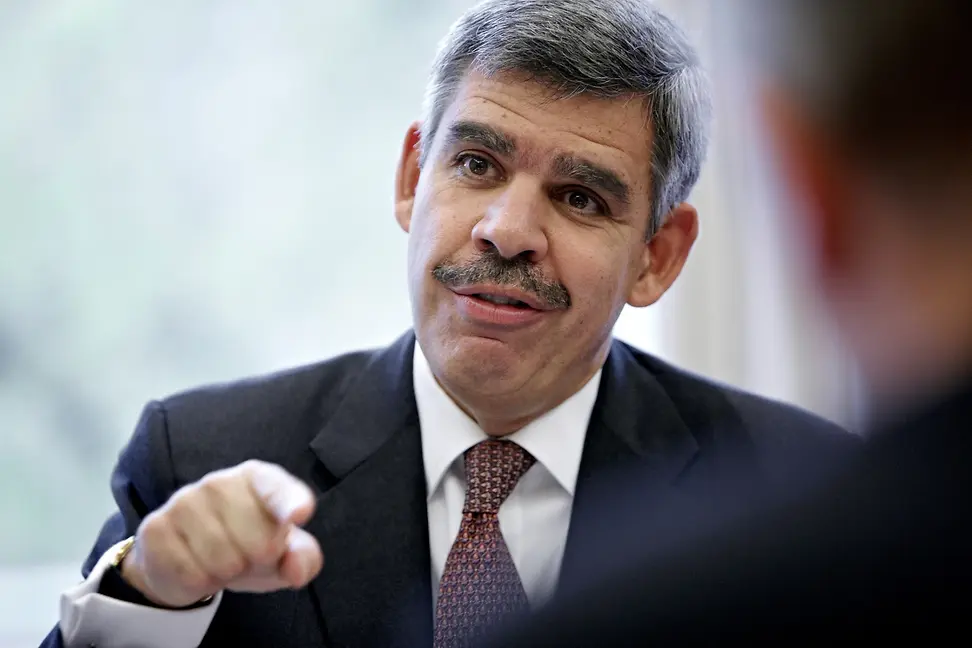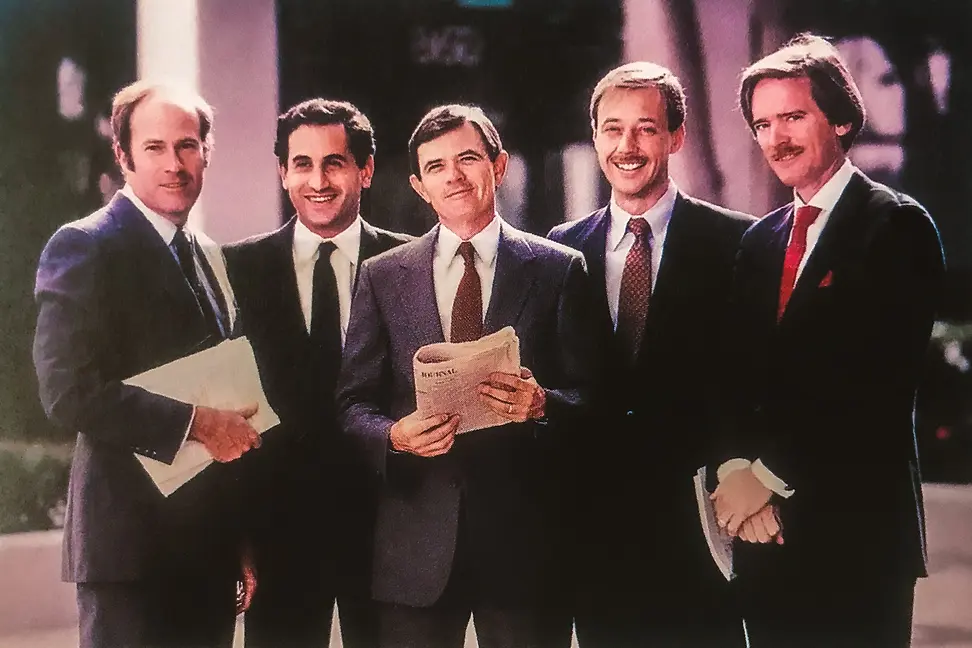Gross pioneered active bond trading and became an investing superstar - until hubris caught up with him.

The bond market was once a very dull place. Unlike stocks, bonds were rarely traded. Passive and predictable, they were typically stored in vaults and snail-mailed to buyers, who were mostly insurers and pension funds that held them to offset future liabilities.
Then, in 1971, Bill Gross co-founded the Pacific Investment Management Co. (Pimco), and everything changed.
Gross recognised that these debt instruments could be actively traded. In the process, he innovated new ways for corporations to raise capital.
The Bond King's rise and fall has fuelled reams of copy - and no shortage of speculation.
Since the price of a bond rises as interest rates fall, with interest rates in a decades-long decline, Gross and his team were soon making masses of money. Pimco's flagship Total Return Fund, founded in 1987 and managed by Gross himself, became one of the largest mutual funds in the world. It peaked at close to USD 300 billion, outperforming its benchmark by 140 basis points.
The Pimco team was willing to take on more credit risk than peer funds were. They expanded aggressively into new areas like derivatives, mortgage-backed securities, and junk bonds, leveraging Gross's ability to "distil complex ideas into something simple and accessible", as a former colleague put it.

Gross's seemingly limitless self-confidence turned him into one of the most influential and best-known financiers in the USA.
In the nineteen nineties two of his books, "Bill Gross on Investing" and "Everything You've Heard About Investing is Wrong!" achieved mass-market prominence, and he was frequently interviewed on TV. His passion for philately - the William H. Gross Stamp Gallery at the Smithsonian National Postal Museum is the world's largest gallery dedicated to stamp collecting - also kept him in the public eye.
In 2002, Fortune magazine dubbed Gross the Bond King. According to the investment research firm Morningstar, which named him its Fund Manager of the Decade in 2010, "No other fund manager made more money for people than Bill Gross."
Furthermore, Gross had the ear of the US government. Following the financial crisis of 2008, he advised the US Treasury on the role played by sub-prime mortgage bonds. He also emerged as one of the most fervent supporters of the Obama administration's Public-Private Investment Program (PPIP), which enlisted private investors to help bail out the nation's ailing banks.
Just five years later, however, Gross' fortunes changed. Following a period of poor investment performance, an acrimonious dispute with Pimco's CEO Mohammed El-Erian led to the departure of both men in 2014. The following year, Gross launched a lawsuit against Pimco, claiming he had been pushed out by a "cabal" of "improper, dishonest, and unethical" executives.
The case was settled in Gross's favour in 2017 for a reported USD 81 million, all of which Gross pledged to donate to charity. He moved on to join Janus Capital Group (now Janus Henderson Investors). By then, however, the great bull market for bonds was over. Besides, Gross was managing a very different kind of fund.

In contrast to Pimco, where he had been tied to a benchmark with internal controls, at Janus Henderson he was under no such constraints. Investors' expectations were high; George Soros, for instance, reportedly kicked in USD 500 million. So when Gross made the wrong bets on the direction of rates and government bond convergence, his losses mounted.
In 2019, aged 76, Gross announced his retirement from both Janus Henderson and active fund management.
The story of the Bond King's rise and fall has spawned a lot of copy and plenty of conjecture.
For some critics, Gross's fabled success at Pimco was largely down to luck, his career having coincided almost perfectly with a once-in-a-generation collapse in interest rates.

What's more, the sceptics claim, once Pimco's Total Return Fund achieved a threshold size, Gross was delivering more beta (the return of the market overall) than alpha (additional returns, which active managers like to attribute to their unique skills). According to this argument, a cheap index fund could have done just as well, although recent analysis suggests that the Pimco fund did in fact deliver alpha outperformance, if only in favourable markets.
Detractors also tend to lay much of the blame for Gross's downfall on his famously quirky personality (he revealed a diagnosis for Asperger's in 2019). The colourful details of his 2018 divorce from his second wife delighted the gossip columnists, and in 2020, Gross again fed tabloid headlines when he and his third wife sued their neighbour in Laguna Beach, California, for "peeping tom behaviours".
Many serious commentators agree, however, that Gross was indeed a great investor. According to the Fortune story that first crowned him the Bond King, Gross understood risk, and especially duration (a measure of how many years it takes to recoup a bond's true cost) better than most. The longer a bond's duration, the more its price fluctuates when interest rates change, hence the tendency of cautious investors to choose shorter-term durations, while Gross often went long.
Mary Childs, author of "The Bond King: How One Man Made a Market, Built an Empire and Lost It All" (2022), cites research based on a framework used to analyse Warren Buffett's investment track record, to show that while he was at Pimco, Gross "had a system and the system worked".
Childs, a financial journalist, believes that identifying "market inefficiencies around which he was able to structure trades" was key to Gross's success. And although that skill eventually failed him, she reckons it's because he allowed his emotions to get the better of him.
LGT Wealth Management UK LLP is authorised and regulated by the Financial Conduct Authority Registered in England and Wales: OC329392. Registered office: 14 Cornhill, London, EC3V 3NR. LGT Wealth Management Limited is authorised and regulated by the Financial Conduct Authority. Registered in Scotland number SC317950 at Capital Square, 58 Morrison Street, Edinburgh, EH3 8BP. LGT Wealth Management Jersey Limited is incorporated in Jersey and is regulated by the Jersey Financial Services Commission in the conduct of Investment Business and Funds Service Business: 102243. Registered office: Sir Walter Raleigh House, 48-50 Esplanade, St Helier, Jersey JE2 3QB. LGT Wealth Management (CI) Limited is registered in Jersey and is regulated by the Jersey Financial Services Commission: 5769. Registered Office: at Sir Walter Raleigh House, 48 – 50 Esplanade, St Helier, Jersey JE2 3QB. LGT Wealth Management US Limited is authorised and regulated by the Financial Conduct Authority and is a Registered Investment Adviser with the US Securities & Exchange Commission (“SEC”). Registered in England and Wales: 06455240. Registered Office: 14 Cornhill, London, EC3V 3NR.
This communication is provided for information purposes only. The information presented is not intended and should not be construed as an offer, solicitation, recommendation or advice to buy and/or sell any specific investments or participate in any investment (or other) strategy and should not be construed as such. The views expressed in this publication do not necessarily reflect the views of LGT Wealth Management US Limited as a whole or any part thereof. Although the information is based on data which LGT Wealth Management US Limited considers reliable, no representation or warranty (express or otherwise) is given as to the accuracy or completeness of the information contained in this Publication, and LGT Wealth Management US Limited and its employees accept no liability for the consequences of acting upon the information contained herein. Information about potential tax benefits is based on our understanding of current tax law and practice and may be subject to change. The tax treatment depends on the individual circumstances of each individual and may be subject to change in the future.
All investments involve risk and may lose value. Your capital is always at risk. Any investor should be aware that past performance is not an indication of future performance, and that the value of investments and the income derived from them may fluctuate, and they may not receive back the amount they originally invested.